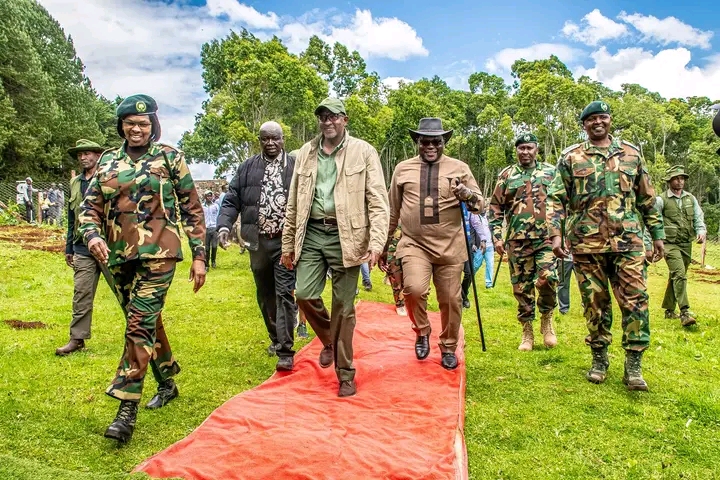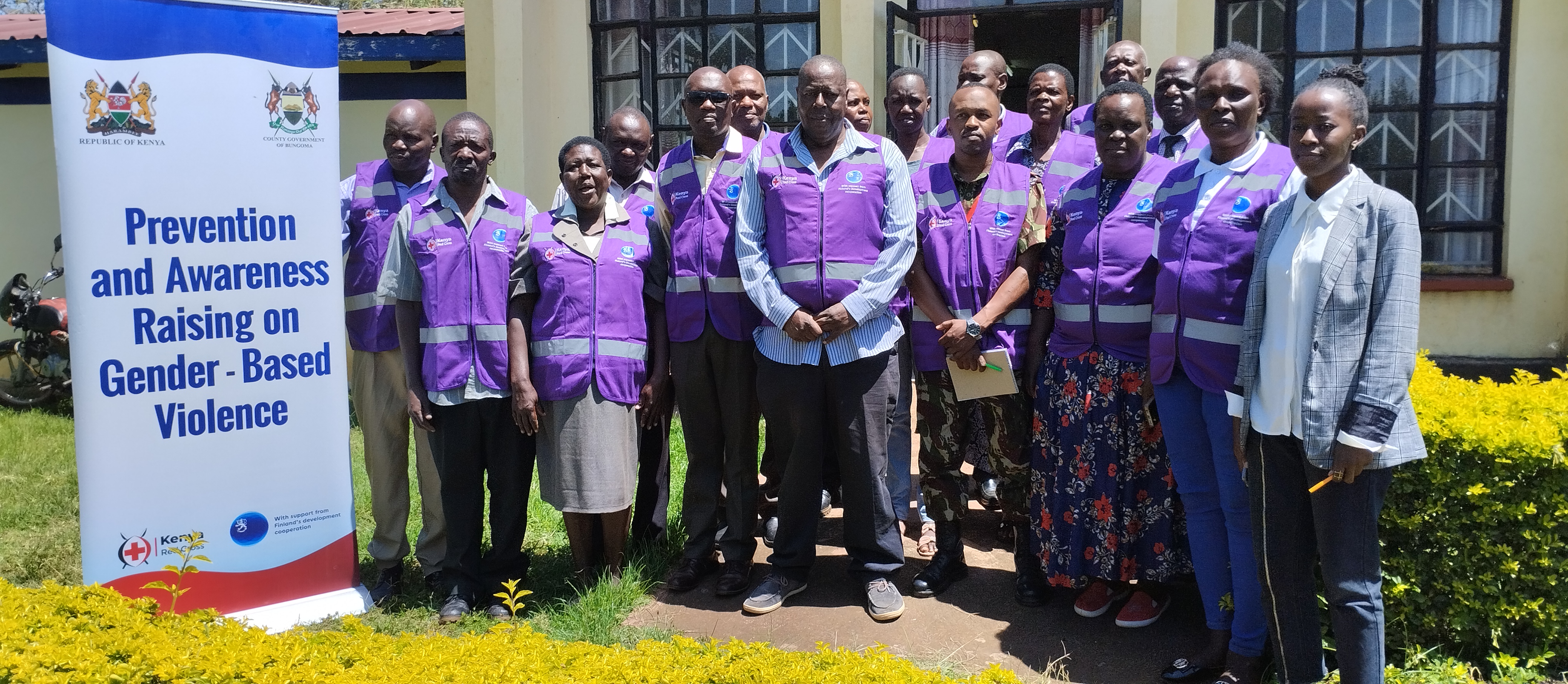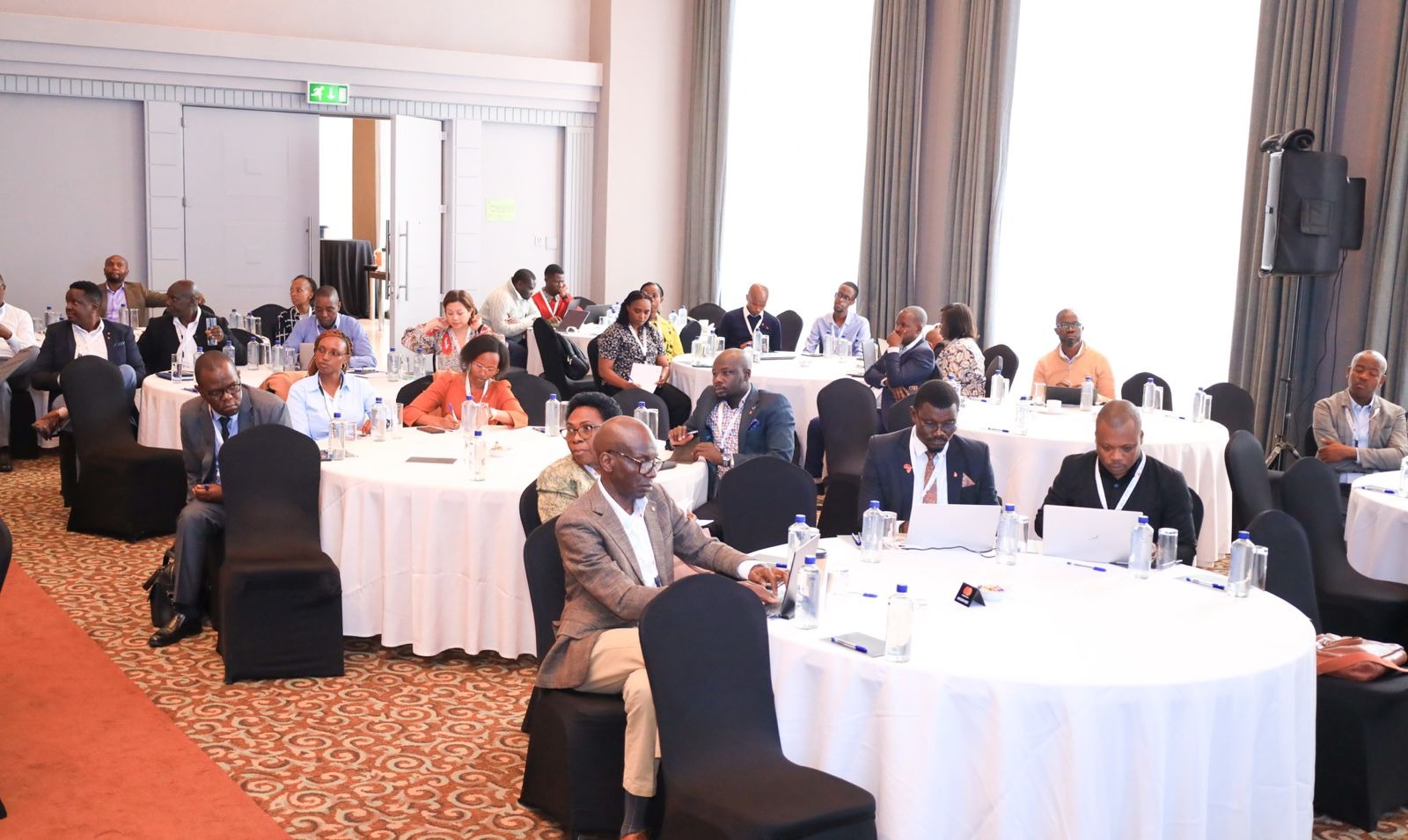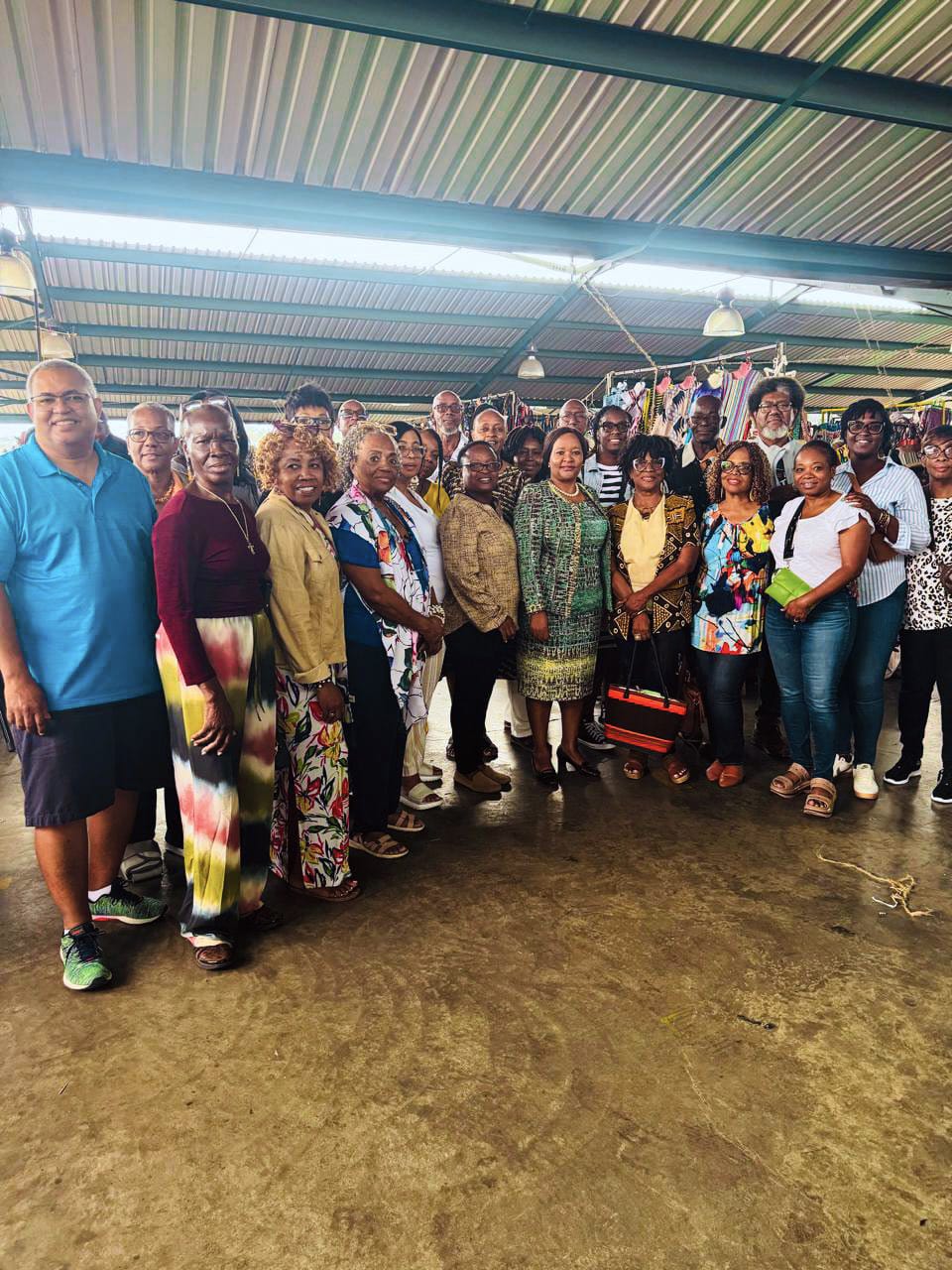Restoring Dignity: Redefining Menstrual Health By Using Reusable Sanitary Towels

By Isabella Maua
A girl in Mt. Elgon Sub County is estimated to miss at least 5 days of school a month due to menstrual-related challenges, top among them not being able to purchase a packet of sanitary pads.
It is because of these disturbing statistics that Village Enterprise, a non-governmental organization, in collaboration with the Starbucks Foundation and the Days for Girls Foundation, took upon them to empower the disadvantaged and vulnerable women of Mt. Elgon.
Caroline Wafula is the lead person for Village Enterprise across Mt. Elgon region, and she shares insights on how they decided to train interested women and men to sew reusable, environmentally friendly sanitary towels.
“We did our research, and true to our findings, there were many needy people for whom we could improve their lives by economically empowering them by giving grants and financial knowledge on how to run small businesses,” divulged Wafula.

As a strategy to advocate for menstrual health and hygiene to seal the gap of school absenteeism among girls of the minority and marginalized Sabaot community who vastly occupy the region, Baraka and Amani Days for Girls were born in Kapsokwony and Kapkateny, respectively.
Joan Chesutek from Kongit is a tailor who spends the better part of her day at Baraka Days for Girls in Kapsokwony sewing and packing reusable sanitary towels into transparent boxes where potential buyers can walk in and choose their favorite colours and design.
“My main mandate is to change the narrative of a girl child who hails from a humble background and give them an equal opportunity to education like the boys have by providing them with free washable sanitary towels,” Chesutek said with contentment.
She divulges that many families in the region live in abject poverty as a result of post-election violence and the Sabaot Land Defense Force militia operations, which robbed many wives of their husbands and children of their fathers.
“It is because of such tragedies that many women have had to rely on charcoal burning and firewood business to fend for their families hence many cannot afford to purchase sanitary pads every month despite its necessity,” Chesutek added.

This has in turn led to many early marriages and teenage pregnancies, which have resulted in girls being duped into unsafe sexual relations with men who promise to buy them pads.
“Many girls have dropped out of school after being impregnated by older men and, in most cases, motorbike riders who have, in the worst cases, infected them with HIV/AIDS,” she revealed.
Making these reusable sanitary towels could have been a lasting solution for these girls, but not so fast! The price of a package goes for 600 shillings, entailing two sanitary towels and a panty.
“It has become a challenge for us to sell our products despite the fact that they are actually economical since a packet can be used for 3 years. This is because most of our potential customers earn below a dollar a day,” divulged Chesutek.
To prove the intensity of the matter, we visited Kongit, one of the remote places in the region located at the boundary of Kenya and Uganda.
The hostility of the area speaks a lot, not only in terms of the weather but also of the inhabitants in the vicinity.
Chebet (not her real name) shares her disheartening story of how a pad costed her her education and career, something she recalls with unfathomable agony.
“At the age of 19, I look like a grandmother; it is not my wish, but while in eighth grade, I started a relationship with two motorcycle riders who promised to buy me sanitary pads and later marry me,” she narrates, trying to hold back her tears in vain.
Chebet gave in to their sexual advances, which later made her a mother at the very tender age of fifteen with no place to call home since her parents could literally not afford the extra baggage.
“I had to accept getting married to one of the men, though he already had a wife; life could not offer me any other option!” she wept.
It is through such case scenarios that Simon Kibet, a man in his fifties, joined the team to rewrite the sad story of the girl child on Mt. Elgon.
“I have seen and felt the challenges girls and women go through during their menses; it’s not something to be ashamed of anymore, and that’s why I am part of the change,” Kibet said with compassion.
He, on the other hand, called upon the county government and other well-wishers to promote their efforts and assist many needy girls in the community by buying their products.
Coming from an indigenous community with a backward culture, Kibet admits to having defied all odds to stick to his goal of eradicating menstrual shame.
“I have done this tailoring job for two years now, despite many people looking down on me. I, however, remain resilient to the course for the sake of many mothers and daughters out there,” he affirms.
Chesutek also reveals that besides taking most of the time at their tailoring shop, she spends a better part of her week visiting schools and talking to girls and boys about menstrual hygiene.
“It is no longer a girl’s only business; boys too should be part of changing this narrative and be their sister’s keeper; so far, they are knowledgeable, and some even buy pads for their sisters and relatives,” she reveals.
According to Wafula of Village Enterprise, the material used for making the sanitary towels is a special imported fabric that is KEBS-certified and climate-friendly.
“Unlike disposable sanitary pads, which are thrown anyhow, causing water and environmental pollution besides being bound to infections, these ones are environment conscious,” Wafula accentuates.
It is in the quest to make life bearable for the less fortunate girls and women in society (with zero tolerance to menstrual shame and stigma) that the passionate team of “Baraka Days for Girls tailors seeks aid in finding a ready market for their products.







